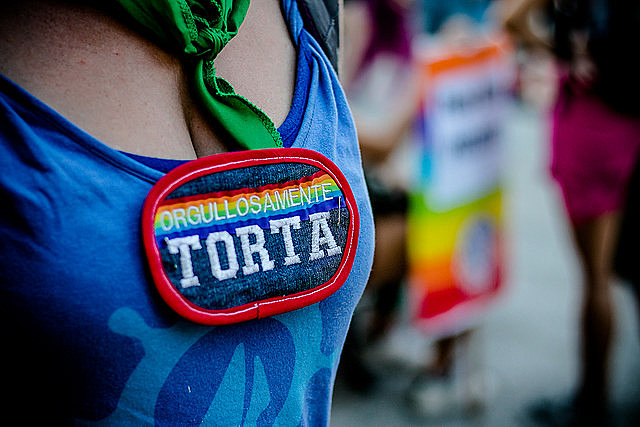As women who want to live their sexuality and love for other women are victims not only of sexism and misogyny, but also lesbophobia, hatred against lesbians in Brazil is on the rise, not only on social media, but also in real life.
A dossier on lesbophobic femicide in Brazil released this year shows that the murder rate of lesbian women was up by 237 percent between 2014 and 2017. The survey, conducted by a group focused on lesbophobic femicide research and a feminist group also shows that, in most cases, the victims are young and black women.
While the numbers are alarming, Cinthia Abreu, a member of the World March of Women and the São Paulo March of Black Women, says these figures also show the issue of crime against lesbian women has been given greater publicity in recent years, thanks to their organization.
“This growth is a result of greater visibility. People are now able to say it’s not street fighting, it’s not an altercation, it’s lesbophobic femicide when we are killed because of our sexual orientation, which is being a lesbian in this society,” she argues.
Abreu also addresses the so-called corrective rapes, when men sexually assault lesbian women to allegedly “correct” their sexual orientation. “We see that some of these acts are perpetrated by their own family, it’s not even strangers. This also happens in the family, when their own relatives tries to correct what they would call sexual ‘disorientation.’”
Accessing government services catered for LGBT people is yet another obstacle; another big problem for lesbian women is that they are usually employed in vulnerable or invisible jobs.
“We, lesbians, are a major labor force in call centers, first because it’s an extremely vulnerable job, with not a lot of rights, but especially because we are not seen,” the activists says.
Brazil celebrates the National Lesbian Visibility Day on Aug. 29. The date was established in 1996, when the 1st National Lesbian and Bisexual Seminar was held. In addition to shedding light on issues that make these women’s lives hard, the date represents the struggle and resistance that has been growing, especially on the outskirts, through the voices of black lesbian women.
“There’s a very interest resistance coming from lesbian women in the hoods and on the outskirts. A new way of doing politics, of exposing [the problem], including slams, poetry reading sessions, zines, film sessions and discussions. This is undoubtedly coming from black women.”
In São Paulo, the lesbian visibility demonstration will take place this afternoon and will honor victims of lesbophobic violence, also exposing crime and State neglect.




